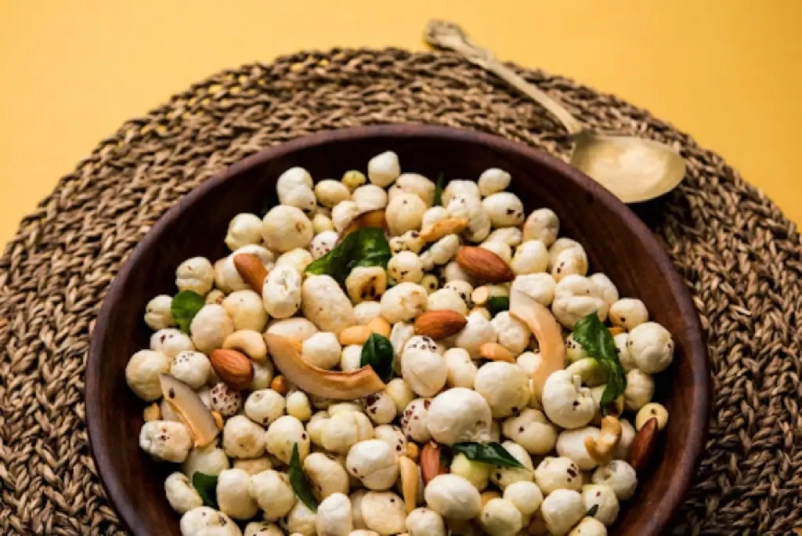Late nights are becoming a common part of modern life, whether you’re working late, managing family responsibilities, or simply have an irregular schedule.
But what most people don’t realize is how deeply these late nights affect your metabolism, digestion, and overall energy levels.
As a nutritionist and dietitian, I’ve worked with many professionals, from corporate employees to night shift healthcare workers, who struggle to maintain their energy and health due to erratic meal patterns.
The good news? You can still build a balanced diet for night shift workers and stay energized, focused, and fit, with mindful planning and simple nutrition habits.
Let me walk you through how I guide my clients to eat well, even when the clock runs late.
To complement your balanced diet journey, learn the facts behind detox diets Explained in: what really works in detox diets
How Late Nights Affect Your Body and Metabolism
Your body’s metabolism follows a natural circadian rhythm, meaning it expects food, rest, and movement at specific times. When you regularly stay awake past midnight, this rhythm gets disrupted.
Late-night eating can confuse hunger and fullness hormones like ghrelin and leptin, causing more cravings for sugary or fatty foods. This often leads to weight gain and sluggish digestion.
From my experience as a personal nutrition coach, I’ve seen that clients who adopt irregular sleeping hours tend to experience bloating, acidity, and fatigue more frequently. Their bodies are not just tired, they’re nutritionally confused.
That’s why maintaining nutrition with late nights is not about restriction but rhythm, eating at consistent times, even if your “day” starts at night. Whether you work night shifts or study late, your digestive system needs structure.
If you often stay up working, focus on a meal plan for late nights that supports your natural energy curve, something high in protein and fiber early in your shift, and light, hydrating meals later. This is one of the best ways to avoid weight gain late at night while keeping your body nourished.
If your late-night schedule often leaves you feeling sluggish or bloated, it helps to first understand your body type and eat accordingly (Vata, Pitta, Kapha). Knowing your dominant dosha makes it easier to plan foods that align with your digestion and energy rhythm

Smart Eating Strategies for Night Owls
The first rule of late-night eating is to plan ahead, not to eat impulsively. When you’re tired, your body craves quick energy, usually in the form of refined carbs or caffeine. Instead, give your body sustained energy through balanced nutrition.
Here are some of my favorite tips to eat healthy with night shifts:
- Never skip your first meal: even if it’s evening. Think of it as your “breakfast.”
- Include protein in every meal: Paneer, lentils, eggs, tofu, or Greek yogurt help repair cells and reduce cravings.
- Add healthy fats, like nuts, seeds, and avocado, for brain energy.
- Avoid sugary snacks that spike energy and then crash it.
When I design a balanced diet for night shift workers, I focus on small, frequent meals spaced evenly throughout their active hours. A handful of almonds or a boiled egg mid-shift can prevent overeating later.
Consistency matters more than clock time. The goal is managing diet with an irregular schedule by giving your body the same care, just at different hours.
Even if you’re awake at unconventional hours, try incorporating ingredients that are naturally available during the season. Explore the power of seasonal eating to support digestion and immunity year-round.
Healthy Late-Night Snack Options That Won’t Disturb Your Sleep
Eating late doesn’t have to mean unhealthy. The key is choosing healthy snacks for late night that satisfy hunger without stressing your digestion or disturbing your sleep quality.
Some of my top recommendations for the best foods for late-night work include:
- Greek yogurt with chia seeds: Light, high in protein, and soothing to the stomach.
- Banana with almond butter: Great balance of carbs and good fats.
- A small bowl of oats or porridge: Calms hunger and promotes serotonin for better rest later.
- Roasted chana or fox nuts (makhana): Crunchy, high-protein snacking made healthy.
- Herbal teas or warm turmeric milk: Help reduce cortisol and prepare your body for rest post-work.
As a dietitian, I often tell my clients that “it’s not about when you eat, it’s about what you eat.” Late-night hunger is natural, especially if you’ve been active, but you can nourish your body smartly.
Choosing energy foods for working late, such as whole grains, fruits, and proteins, helps you stay alert without overloading your system.
Late-night schedules often lead to irregular meals, but following simple principles like creating a simple vegetarian balanced meal ensures you still meet your daily nutrition needs.

Planning and Portion Control for Irregular Schedules
Meal timing can make or break your progress. When you have long work hours or night shifts, your hunger signals may not align with the clock. The secret lies in managing diet with an irregular schedule through planning and mindfulness.
Here’s what works well for most of my clients:
- Divide your meals: Instead of 3 large ones, have 4–5 small meals every 3–4 hours.
- Carry healthy options: Keep nuts, fruits, or boiled eggs handy for hunger emergencies.
- Meal prep smartly: Pack your meals in advance to prevent last-minute junk eating.
If you often work late, you can design a meal plan for late nights, such as:
| Time | Meal Example |
| 6:00 PM | High-protein dinner (grilled paneer/chicken + veggies + brown rice) |
| 9:00 PM | Fruit bowl or smoothie |
| 12:00 AM | Whole-grain wrap or boiled eggs |
| 3:00 AM | Light snack (roasted nuts/makhana) |
| 6:00 AM | Herbal tea or turmeric milk before rest |
This plan ensures you don’t overeat and helps you avoid weight gain late at night, even when your schedule is unpredictable.
Remember, planning your portions is not about deprivation; it’s about discipline. I always say, “The more intentional your meals, the more peaceful your metabolism.”
The goal isn’t to follow a strict plan for a few weeks; it’s to create habits that last. To understand how to sustain your progress, read why most diets fail and how to make yours work long-term.
Hydration and Morning Reset Habits After a Late Night
Most people underestimate the power of hydration. During late-night work, it’s common to sip endless coffee or energy drinks, which actually dehydrate you.
As a nutritionist, I emphasize the role of hydration in maintaining nutrition with late nights. Water supports metabolism, keeps your skin clear, and aids digestion when your system is under extra stress.
Keep a bottle of water near your workstation and infuse it with mint, cucumber, or lemon for natural freshness. Coconut water, buttermilk, and herbal teas are also excellent choices.
Once your shift ends, the way you start your “morning” matters too. Instead of skipping the first meal, have something light yet nourishing, like a smoothie, poha with vegetables, or an oatmeal bowl. These energy foods for working late help your body reset and replenish lost nutrients.
Hydration and mindful morning eating together rebuild your body’s internal clock and help you stay consistent with your balanced diet for night shift workers.
If you’re unsure where to begin or need professional guidance, learn more about ways in which a dietitian can support your nutritional objectives, and see how expert support can transform your relationship with food.
Consult with Me: Personalized Diet Plans for Your Lifestyle
Every individual has a unique metabolism, stress level, and sleep pattern. That’s why a one-size-fits-all diet doesn’t work.
As an Online Indian Dietitian & Nutritionist in Dubai, I design nutrition plans that align with your specific lifestyle, whether you’re a nurse on rotating shifts, a tech professional working nights, or a student studying late.
If you’re struggling with maintaining nutrition with late nights, I can help you create a sustainable meal plan for late nights that supports your energy, weight goals, and mental focus.
In my personalized consultations, I guide clients to:
- Balance macros effectively, even with late dinners.
- Choose the best foods for late-night work that are easy to digest.
- Include healthy snacks for late-night cravings without guilt.
- Avoid weight gain late at night by balancing hydration, sleep, and mindful eating.
You don’t have to compromise health for productivity. With the right plan and accountability, you can enjoy healthy eating late at night without losing your energy or focus.
If you’re ready to feel balanced, book your one-on-one consultation with me, and we’ll build a routine that truly works for you.
Frequently Asked Questions (FAQ)
1. Can I eat after 10 PM if I work night shifts?
Yes! What matters is what you eat. Choose light, protein-rich meals like dal soup, paneer, or a small salad to avoid heaviness. Late-night eating can fit into a balanced diet for night shift workers if you maintain regularity and portion control.
2. What are the best foods for late-night work?
Opt for complex carbs, lean proteins, and healthy fats. Examples: boiled eggs, hummus with veggies, or yogurt with flaxseeds. These are great energy foods for working late without disrupting digestion.
3. How do I manage my diet with an irregular schedule?
Follow pre-set meal intervals rather than clock time. Carry snacks and hydrate consistently. The key to managing diet with an irregular schedule is awareness, not perfection.
4. Can I drink coffee late at night?
Limit caffeine after 2–3 AM to avoid poor sleep. Replace it with green tea or herbal infusions.
5. How do I avoid weight gain late at night?
Stick to small portions, avoid high-sugar foods, and include light exercise or stretching before sleeping. With consistent habits, you can easily avoid weight gain late at night even with demanding shifts.
Tapasya Mundhra is a Clinical Dietitian and Wellness Consultant based in Newark, USA, specializing in Nutrition for Weight Loss, Detox Diets, and Stress Management. With over 13 years of experience, she helps clients optimize their physical and mental well-being through personalized diet plans, moderate workouts, and holistic health strategies. Trusted by countless clients, she is dedicated to achieving sustainable health goals.

